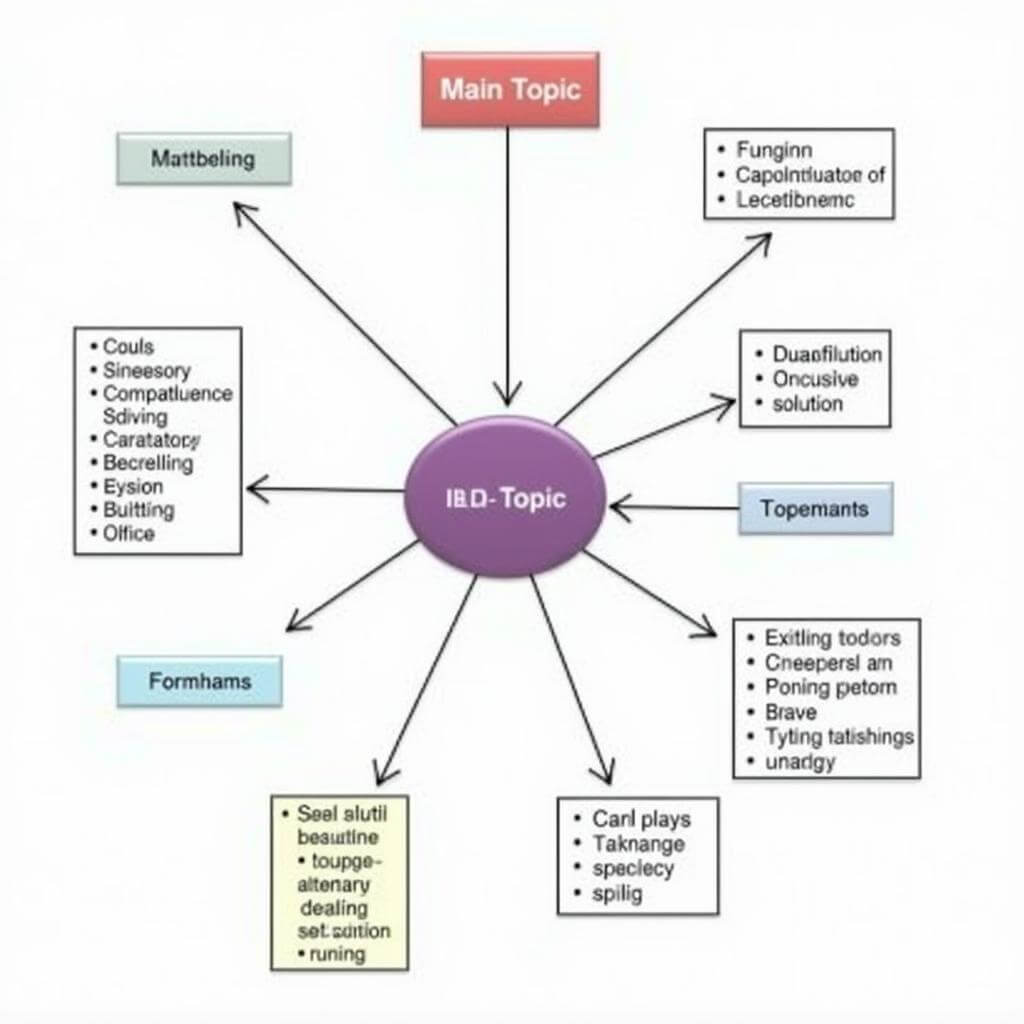IELTS candidates often find themselves challenged by complex topics, especially in the Writing and Speaking sections. This article will explore proven strategies for dealing with complex topics in IELTS, helping you approach them with confidence and achieve a higher band score.
Understanding Complex Topics in IELTS
Complex topics in IELTS can range from abstract concepts to specialized subjects. They often require a deeper level of analysis and a more sophisticated use of language. Here’s how to approach them:
- Break down the topic into manageable parts
- Identify key terms and concepts
- Draw from your general knowledge and personal experiences
- Use specific examples to support your arguments

Strategies for Tackling Complex Writing Task 2 Topics
Writing Task 2 often presents the most challenging topics. Here are some effective strategies to handle them:
1. Analyze the Question Carefully
- Identify the key words in the question
- Determine the type of essay required (opinion, discussion, problem-solution, etc.)
- Ensure you understand all parts of the question
2. Plan Your Response
- Brainstorm ideas and relevant examples
- Organize your thoughts into a clear structure
- Allocate time for each paragraph
3. Use Advanced Vocabulary and Structures
Incorporating sophisticated language can help you express complex ideas more effectively. For example:
“While the implementation of stricter environmental regulations may pose short-term economic challenges, the long-term benefits for ecological sustainability are undeniable.”
This sentence demonstrates the use of advanced vocabulary and a complex sentence structure to discuss a nuanced topic.
4. Develop Well-Supported Arguments
- Use specific examples to illustrate your points
- Incorporate relevant statistics or expert opinions
- Explain the connection between your examples and the main argument
How to handle difficult topics in IELTS Writing Task 2? provides more in-depth guidance on this crucial aspect of the test.
Strategies for Complex Speaking Topics
The IELTS Speaking test can also present challenging topics, especially in Parts 2 and 3. Here’s how to handle them:
1. Buy Time to Think
- Use fillers like “Well, that’s an interesting question…”
- Rephrase the question to give yourself more time
2. Draw from Personal Experiences
- Relate the topic to your own life or observations
- Use anecdotes to make abstract concepts more concrete
3. Employ Advanced Speaking Techniques
- Use idiomatic expressions appropriately
- Demonstrate a range of grammatical structures
Dr. Emma Thompson, an IELTS expert with over 15 years of experience, advises:
“When faced with a complex speaking topic, don’t be afraid to acknowledge its difficulty. You can say something like, ‘That’s quite a challenging topic, but I’ll do my best to share my thoughts.’ This shows the examiner that you’re engaging with the complexity rather than avoiding it.”
Improving Comprehension for Complex Reading Passages
The IELTS Reading section often includes texts on specialized or academic subjects. Here’s how to approach them:
- Skim the passage to get a general idea
- Pay attention to topic sentences and concluding sentences
- Use context clues to understand unfamiliar vocabulary
- Practice active reading by asking yourself questions about the text
Improving comprehension of longer passages offers additional techniques for mastering this skill.
Enhancing Listening Skills for Complex Audio Materials
Complex topics can also appear in the Listening test. Try these strategies:
- Familiarize yourself with academic and professional vocabulary
- Practice note-taking to capture key information
- Listen for signpost words that indicate important points or transitions
- Improve your ability to understand different accents
The Power of Preparation
Dealing with complex topics becomes easier with proper preparation. Here are some tips:
- Read widely on various subjects to build your general knowledge
- Practice paraphrasing complex ideas in simpler terms
- Regularly engage in discussions on challenging topics
- Use IELTS practice materials that focus on more difficult subjects
Conclusion
Mastering strategies for dealing with complex topics in IELTS is crucial for achieving a high band score. By breaking down difficult subjects, using advanced language appropriately, and drawing from your knowledge and experiences, you can approach even the most challenging IELTS tasks with confidence. Remember, practice is key to improving your ability to handle complex topics across all sections of the IELTS test.
FAQ
How can I improve my vocabulary for complex IELTS topics?
Read widely on various subjects, use a thesaurus to find synonyms, and practice using new words in context. How to achieve band 8 in IELTS speaking provides useful tips that can also apply to expanding your vocabulary.
What should I do if I encounter an unfamiliar topic in the IELTS test?
Stay calm and try to relate the topic to something you know. Use your general knowledge and personal experiences to formulate a response.
How can I practice dealing with complex topics before the IELTS test?
Engage in debates, write essays on challenging subjects, and use advanced IELTS preparation materials that focus on difficult topics.
Is it okay to ask for clarification if I don’t understand a complex question in the Speaking test?
Yes, it’s perfectly acceptable to ask for clarification. However, try to do so in a way that demonstrates your language skills, such as “Could you please elaborate on what you mean by…?”
How much time should I spend planning my response to a complex Writing Task 2 question?
Aim to spend about 5-7 minutes planning your essay. This time investment will help you organize your thoughts and write a more coherent response.